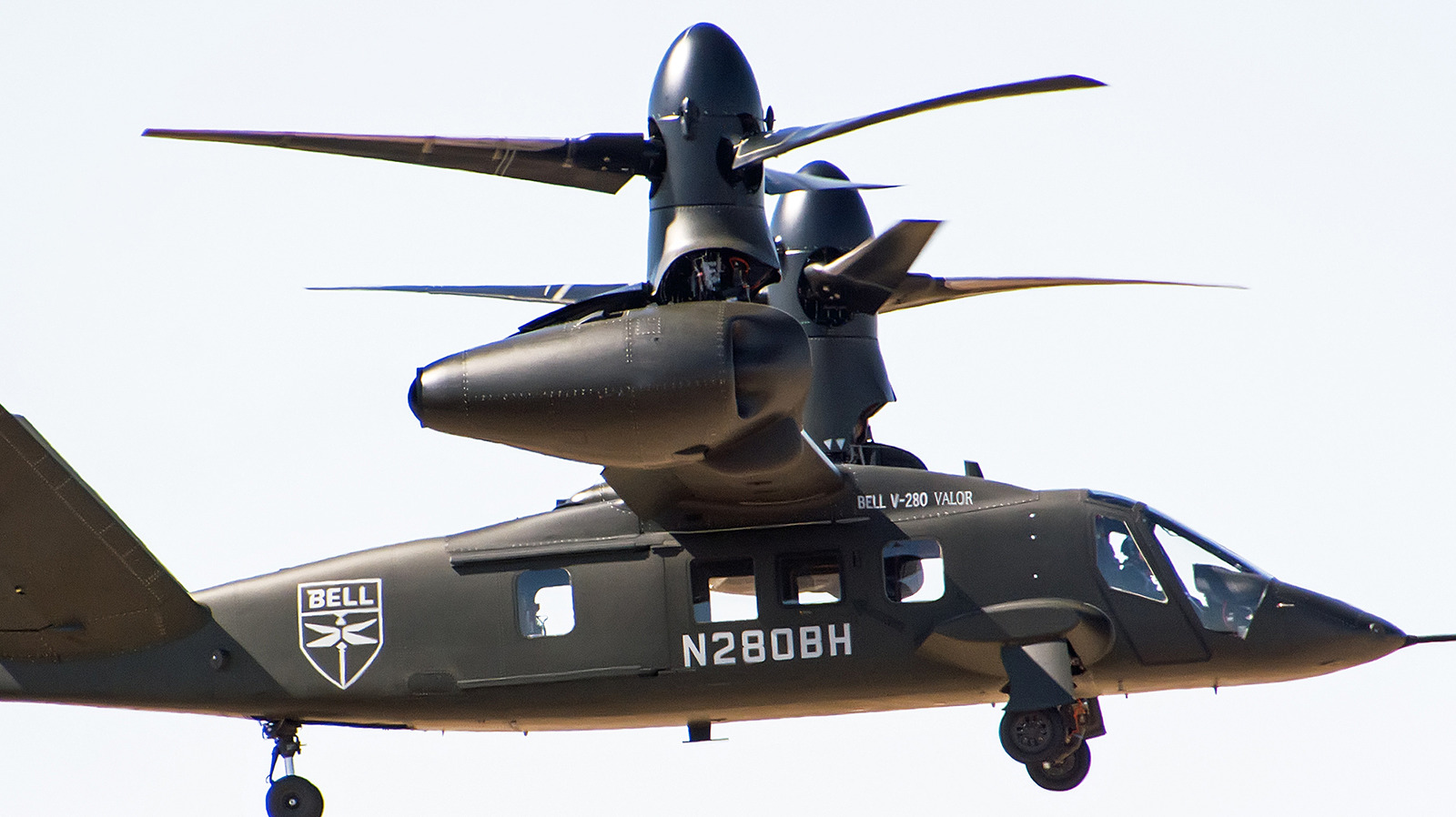
When asked what capabilities put the Valor ahead of its competition, Maj. Gen. Barrie declined to go into specifics beyond seeking a “best value approach” that evaluated a wide array of features in combination. Meanwhile, Bell has been scant with details on exactly what specifications can be expected from the Valor. However, there are a few available puzzle pieces that can start to form a rough picture of this aircraft’s potential. For example, Bell states that the Valor will offer double the range and double the speed compared to the U.S. Army’s current fleet. The UH-60 Black Hawk has a max range of up to 1,200 nautical miles (about 1,380 miles) and a speed of 150 knots (about 172 mph), so the Valor could have a range of around 2,760 miles and a speed near 345 mph.
Bell has also taken a high-tech approach to both the cockpit and maintenance. The fly-by-wire system features a digital cockpit that can give the pilot enhanced visibility in challenging conditions as well as visual references that would otherwise be lacking, making VTOL applications easier to navigate. Additionally, the Rolls-Royce engines are part of the AE 1107 family of engines which have an extensive track record. The Valor’s version of this engine — the AE 1107F — will include what Rolls-Royce called an “advanced Infrared Suppression System,” ostensibly to help minimize the aircraft’s visibility to things like infrared-guided missiles. With so much information under wraps, don’t be surprised if in the future we find out the Valor is capable of more than the company is letting on today.
Stay connected with us on social media platform for instant update click here to join our Twitter, & Facebook
We are now on Telegram. Click here to join our channel (@TechiUpdate) and stay updated with the latest Technology headlines.
For all the latest Gaming News Click Here
